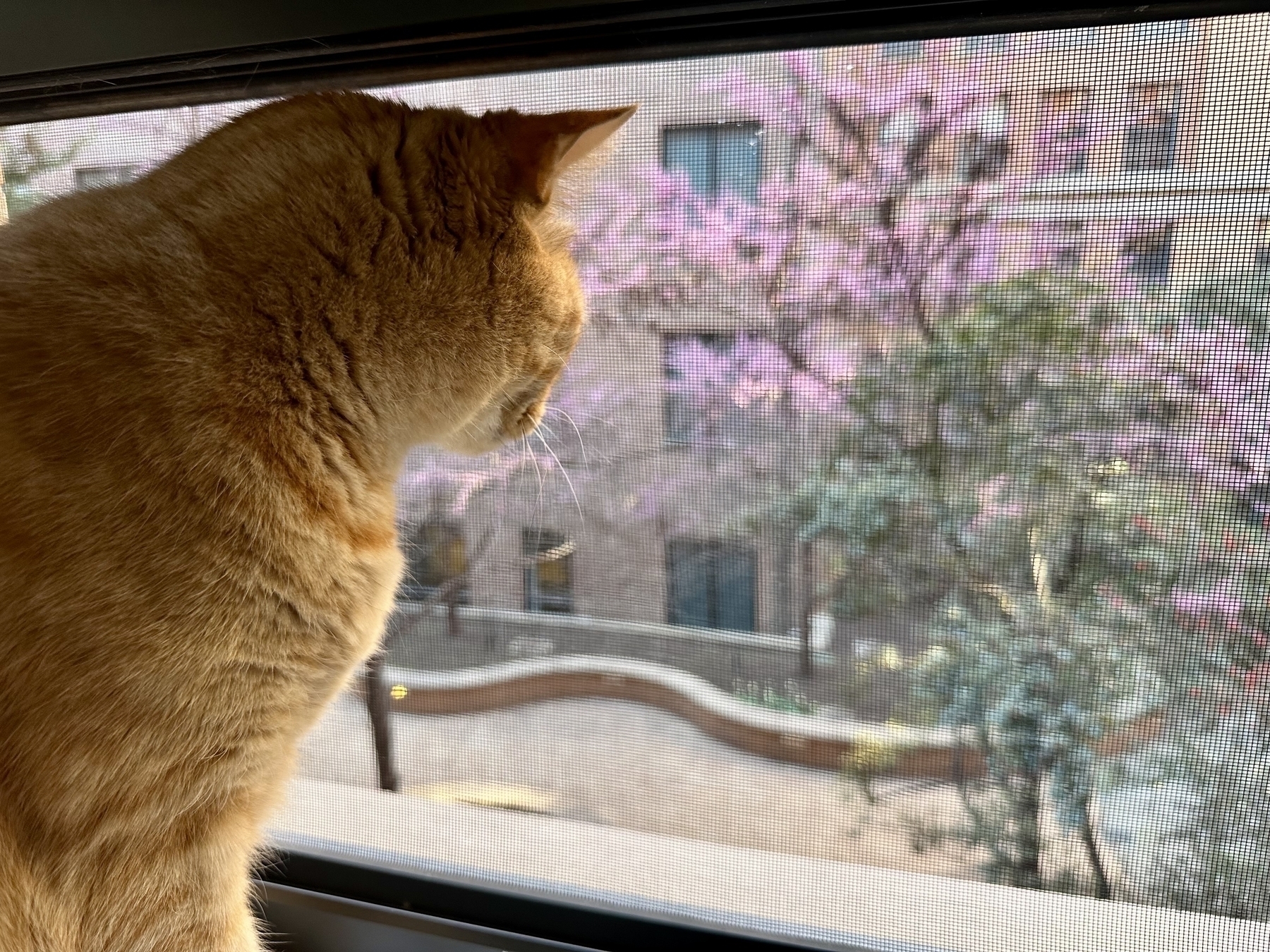Our first time at a Michelin star restaurant was in Tail-Up Goat a few blocks down from our first DC apartment in Adams Morgan. It was one of those places where you needed a flashlight to see your food, and the crispy salt cod was more salt than crispy. We have avoided Michelin stars ever since.

The previously mentioned Axios Local newsletters continues to be a delight to read every morning. To take a quote from today’s edition, discussing the absolute horror of someone cheating at bar trivia:
In a town filled with people trying to relive their Model UN glory days, trivia isn’t just some silly bar game — it’s the D.C. equivalent of flexing shirtless on Muscle Beach.
While this isn’t what most of DC is actually like, there are many people living here who would like it to be this way and that also tells you something.
We finally got tho see The Great Zucchini of The Peekaboo Paradox fame (first mentioned here) in action. He was indeed as marvelous as they say. If toddlers were automatons he’d be the Master Engineer, knowing exactly what button to push to get the desired reaction — be it wonder, awe or delight.
🏀 Remember these two nitwits shaking hands on a deal? Well, the deal is dead and the Caps and Wizards' owner suddenly has some nice things to say about DC. Quoth Wikipedia:
Eating crow is a colloquial idiom, used in some English-speaking countries, that means humiliation by admitting having been proven wrong after taking a strong position. The crow is a carrion-eater that is presumably repulsive to eat in the same way that being proven wrong might be emotionally hard to swallow.
A good day for birdwatching.

Beautiful weather in DC today. On days like this the sculpture garden shines.

Twenty paragraphs about DC summer child care in the Washington Post this morning and not one mention of grandparents chipping in. This DC-area parent couldn’t have made it without some help from his own parents and in-laws — call it a homegrown Serbian immersion program.
Here are some very cool photos of late 19th century Washington DC. It looked more like the Wild West than I would have suspected — see #11, Ford’s Theater and #46, 7th and D for good examples.
Most of it is gone, but some things are left standing — like #19, now part of the Smithsonian. (↬Reddit).
For your morning viewing pleasure: How Ireland & Scotland are ruining their housing markets (spoiler: by instituting rent control).
As bad as DC’s government is on crime, at least they know that they only way to combat homelessness and high rent is to increase supply. (↬Marginal Revolution)
ChatGPT as a chatbot is quite good, actually
One very good use case for ChatGPT is… actually chatting. Who knew?
I was waiting for someone at a restaurant and had 10 minutes by myself — a rarity these days. Instead of scrolling through one social network timeline or the other, I opened up the ChatGPT iPhone app, and learned that the only Leonardo painting in the Western hemisphere was right at my doorstep. Also learned that there are only 20 paintings by Leonardo and more than 300 by Rembrandt, and a few other tidbits.
Are any of them true? Well, trust but verify as they say, but why should I trust it any less than a random X account? Or worse yet, a non-random threadboy — now there’s a useful word I saw just recently — who posts unsourced graphs and opinions-as-facts.
Now sure, X and other social networks have upsides, like bonding with fellow humans over topics of joint interest. But these are for the most part shallow connections, empty calories for our socialite stomachs. A more stable and sustainable equilibrium for most people, certainly for me, could be real-life interactions for socializing and algorithms for tickling the mind without any pretense that we would be buddies. Social networks try to be both but are not great at either, the same way pickup trucks try to be both a car and a truck but are mostly gas-guzzling parking spot-hogging behemoths, and at the same time the most popular vehicles in the US. So, a perfect analogy.
From this perspective, ChatGPT’s forgetfulness is an excellent feature. It remembering prior conversations would bring it a step closer towards parasocializing, making it even worse than human social networks. I have no doubt that the feature is coming any month now, if it’s not already here. If and when it comes will the the point when X/Threads/Bluesky et al should sound the alarm — or introduce friendly algorithms of their own.